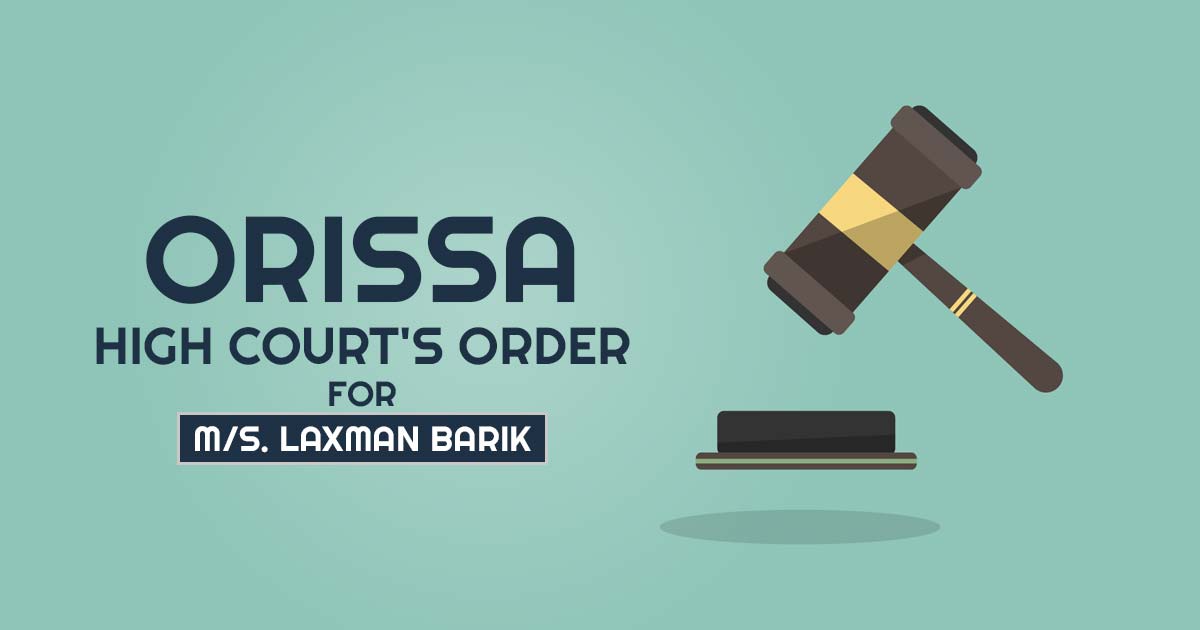
The GST demand for the tax deposit would have been stayed by the Orissa High Court since the GST tribunal would not be constituted.
As the applicant wishes to claim for the remedy beneath the provisions of law via approaching the 2nd appellate tribunal that would not yet be formed as an interim measure for the applicant depositing the whole tax demand in the duration of 4 weeks, the left demand will be remain stayed in the due of the writ petition, the bench of Justice B.R. Sarangi and Justice M.S. Raman witnessed.
Important: GSTAT: Definition, Members, Reason of Delay Domino Effect
The taxpayer has filed the writ petition questioning the first appellate order issued via the Joint Commissioner of State Tax, CT, and GST Territorial Range, Angul.
The 1st appellate authority did not admit the appeal preferred by the petitioner, as it was in contravention of Sections 107(1) and (4) of the GST Act, and had rejected the appeal filed under Section 107 (1) of the Odisha Goods and Services Tax Act, 2017.
The petitioner argued that the ruling made by the first appellate authority was invalid since the petitioner was not required to pay the tax and penalty under GST. Despite the validity of the second appeal, the second appellate tribunal has not yet been established.
The petitioner argued that because there is no second appellate forum and the petitioner has already paid 10% of the sought tax amount to the first appellate body, the High Court should hear the writ petition.
The department argued that because the appeal was delayed in being filed, the court might not be able to excuse the delay beyond four months, especially since the appellate authority was not given the authority to excuse delays of more than one month after a period of three months had passed since the date the order in question was communicated.
The petitioner is responsible for paying the tax because the lawsuit is on a different basis. If the petitioner chooses to use the remedy by filing an appeal before the second appellate tribunal, they will be required to pay 20% of the remaining disputed tax so that the second appellate tribunal will review their appeal.
Because the appellate tribunal has not yet been established, the court allowed interim relief of stay in circumstances where the taxpayer wishes to challenge a judgment made by the first appellate authority, subject to the assessee contributing the required tax amount.
| Case Title | M/s. Laxman Barik & Anr. Vs. Joint Commissioner of State Tax |
| Citation | W.P (C) No. 10587 of 2023 And I.A. No. 4924 of 2023 |
| Date | 30.09.2022 |
| Petitioner | Mr. R. Ghosh, Advovate |
| Opposite Parties | Mr. Sunil Mishra, SC [CT & GST] |
| Orissa High Court | Read Order |